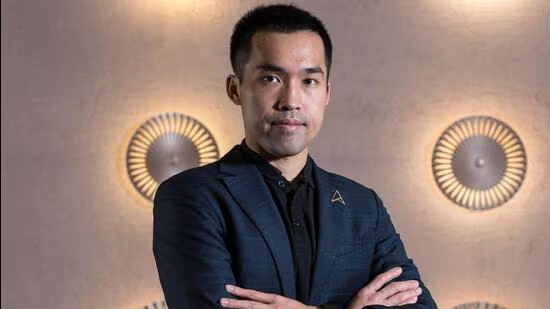26 september 2024 : The Evolving PC Market: Insights from Asus’ Arnold Su
The PC market is currently experiencing a significant transition not seen in years, reminiscent of the shift from Intel’s Pentium to Core “i” chips. This period is also marked by uncertainty similar to that surrounding Windows Vista and Windows 8, prior to the more stable Windows 10 era. Laptops, desktops, and convertibles are increasingly being recognized as “AI PCs,” a term that carries multiple meanings, as explained by Arnold Su, Vice President for Consumer & Gaming PCs at Asus India.
Despite sales beginning to plateau, Su believes that the complexity of defining AI PCs is warranted. He supports this with data showing that the Indian PC market has grown substantially since 2020, and he asserts that it won’t regress to those earlier figures. Under his leadership, Asus has captured a significant share of this competitive market, now positioned behind HP.
Su discusses Asus’ strategy for the Indian market, focusing on product customization, the development of AI solutions, and the expansion of both retail and service networks.
Market Analysis and Future Strategy
Su emphasizes the importance of analyzing the past four years, especially the impact of COVID-19, which boosted the PC industry. Before 2020, India’s PC market averaged around 3.5 million units annually. However, during 2020-2022, despite the initial lockdowns, the market rebounded to approximately 4.5 million units by the end of 2020 and reached about 5.2 million units in 2021. Although demand has since tapered off, 2023 still saw sales around 4.8 million units, indicating a 50% increase over pre-COVID numbers. For 2024, Su anticipates sales will remain stable between 4.8 million and 5 million units.
Su points out a shift in consumer perception: while many believed smartphones and tablets would replace PCs, users have realized that laptops and desktops are essential for content creation.
AI PCs and Sales Implications
While the AI PC concept is still emerging, Su believes it will take time for its full impact on sales to materialize. Different definitions of AI PCs by companies like Microsoft, Intel, Qualcomm, and AMD create varied standards, complicating the landscape. Currently, AI PCs account for only about 5-10% of the overall market, and using a stricter definition, it falls to less than 1%.
Importance of Developing AI Tools
Asus has created AI tools such as StoryCube and MuseTree, which Su believes are crucial for enhancing user experience. He asserts that while Asus primarily provides hardware, developing a robust ecosystem of AI tools is essential for offering added value to users.
India as a Key Market and Research Hub
Su highlights India’s significance not just as a market but also as a research hub. With many Indians now working at Asus headquarters, the company is committed to understanding the unique preferences of Indian consumers. Unlike past strategies that focused on US, European, or Chinese markets, Asus aims to tailor products to Indian customers, including color preferences and budget-friendly gaming laptops.
Investment Plans for 2025
Looking ahead, Asus plans to invest in expanding its retail presence in India, aiming to increase the number of exclusive stores from 295 to 350 by the end of 2024. The company also plans to hire additional employees, raising its workforce from over 1,000 to 1,500 by the end of 2025. Asus intends to establish a store in each of the 750 districts in India and expand its service centers, which currently number 197, by utilizing retail locations as pickup points for repairs.
Su concludes that ensuring customers can physically interact with Asus products is essential to their strategy, similar to the mobile phone market, where local dealers are readily available. This approach will also help improve service quality and customer satisfaction.

